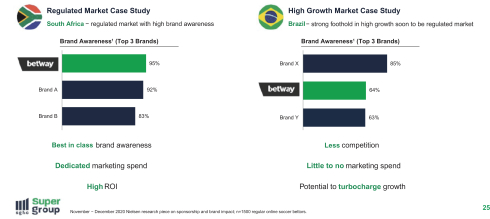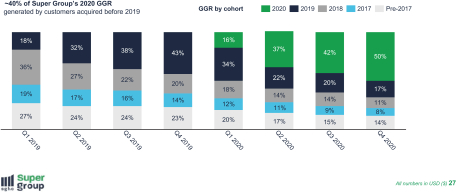Compliance with the various regulations applicable to sports betting and real money casino gaming is costly and time-consuming. Regulatory authorities of the jurisdictions in which we operate, or seek to operate, our business have broad powers with respect to the regulation and licensing of sports betting and casino gaming operations and may revoke, suspend, condition or limit our sports betting or casino gaming licenses, impose substantial fines on us and take other actions, any one of which could have a material adverse effect on our business, financial condition, results of operations and prospects. These laws and regulations are dynamic and subject to potentially differing interpretations, and various legislative and regulatory bodies may expand current laws or regulations or enact new laws and regulations regarding these matters. As such, we engage local counsel to advise on compliance with applicable laws and regulations and we will strive to comply with all applicable laws and regulations relating to our business. It is possible, however, that these requirements may be interpreted and applied in a manner that is inconsistent from one jurisdiction to another and may conflict with other rules. Non-compliance or alleged non-compliance with any such law or regulations could expose us to claims, proceedings, litigation, investigations and prosecutions by private parties and enforcement and regulatory authorities, as well as substantial fines, negative publicity, detention or incarceration of management or other personnel, and revocation, suspension, condition or limitation of our sports betting and gaming licenses, each of which may adversely affect our business.
Any sports betting or gaming license could be revoked, suspended or conditioned at any time. The loss of a license in one jurisdiction could trigger the loss of a license or affect our eligibility for such a license in another jurisdiction, and any such losses, or potential for such loss, could cause us to cease offering some or all of our offerings in the impacted jurisdictions. We may be unable to obtain or maintain all necessary registrations, licenses, permits or approvals, and could incur fines or experience delays related to the licensing process, which could adversely affect our operations. Our delay or failure to obtain or maintain licenses in any jurisdiction may prevent us from distributing our offerings, increasing our customer base and/or generating revenues. We cannot assure you that we will be able to obtain and maintain the licenses and related approvals necessary to conduct our sports betting and online casino gaming operations. Any failure to maintain or renew our existing licenses, registrations, permits or approvals could have an adverse effect on our business, financial condition, results of operations and prospects.
Our growth prospects depend on the regulatory status of real-money gaming in various jurisdictions. Real-money gaming is an area of focus in several jurisdictions, and regulation may not occur in as many jurisdictions as we expect, or may occur at a slower pace than we anticipate. Additionally, even if additional jurisdictions regulate real-money gaming, this may be accompanied by legislative or regulatory restrictions and/or taxes that make it commercially unviable to operate in those jurisdictions, or the process of implementing regulations or securing the necessary licenses to operate in a particular jurisdiction may take longer than we anticipate, which could adversely affect our future results of operations and make it more difficult to meet our expectations for financial performance.
A number of jurisdictions in which we operate, or seek to operate, our business have regulated, or are currently considering regulating, real money gaming, and our business, financial condition, results of operations and prospects are significantly dependent upon regulation of real money gaming. Our business plan is partially based upon the regulation of real money gaming in these jurisdictions; however, this regulation may not occur as we have anticipated. Additionally, if a large number of jurisdictions enact real money gaming legislation and we are unable to obtain, or are otherwise delayed in obtaining the necessary licenses to operate online sports betting or online casino gaming websites in those jurisdictions where such games are regulated, our future growth in online sports betting and online casino gaming could be impaired.
As we enter into new jurisdictions, governments may regulate real money gaming in a manner that is unfavorable to us. As a result, we may encounter legal, regulatory and political challenges that are difficult or impossible to foresee and which could result in an unforeseen adverse impact on planned revenues or costs associated with the new opportunity. For example, certain jurisdictions require us to have a relationship with a land-based, licensed casino for access to online sports betting and/or online casino gaming, which tends to increase our costs of revenue. Jurisdictions that have established government monopolies may limit opportunities for private sector participants like us. Governments in certain jurisdictions also impose substantial tax rates on online sports betting and gaming revenue, in addition to sales taxes in certain jurisdictions and an excise tax on the amount of each wager. As many relevant taxes apply to various measures of modified gross profit, tax rates that are higher than we expect will make it more costly and less desirable for us to launch in a given jurisdiction, while tax increases in any of our existing jurisdictions may adversely impact our profitability.
The Parliament of Canada recently passed legislation allowing provinces to regulate single-event wagering within their jurisdictions, although at this point it is unclear as to the approach which each province will take in such regard. Historically, provincially-regulated offerings were limited to parlay sports betting (which required bets to be made on multiple discrete events) offered by provincial Crown corporations. Sport-betting businesses, like our Betway brands, that operate outside of the provincially-regulated frameworks, have until now also offered single-event betting with limited competition from such Crown corporations, due to the general preference of customers to not be limited to parlay bets only. In addition, certain of our private operator competitors elected not to carry on meaningful sports-betting operations in Canada. However, as a consequence of the legislative change, the Crown corporations and many of our private operator competitors, as well as new market entrants (some of which are well-funded and involve major business interests) have announced their intentions to begin or expand sports betting operations in Canada. Independently, several Canadian provinces have been considering altering their approach to regulated online gaming (including both casino games and sports betting), to permit private operators like us to enter the provincially-regulated system. In particular, the Province of Ontario has moved ahead with its plans to permit provincially-regulated online gaming by private operators under a new regulatory framework. In Ontario, a new provincial commercial contracting party has been established and both it and the provincial regulator have created engagement and licensing mechanisms and have begun to register applicants. Both Spin and Betway have not yet gone live in Ontario, however we are pleased to note that we are in the final stages of the regulatory license process. As of April 20, 2022, Cadway, the entity applying for the license for Betway, has been awarded registration in Ontario, subject to signing the iGO agreement. The iGO agreement is the agreement containing the terms of engagement between Cadway and iGaming Ontario (“iGO”), as the agent of the Alcohol and Gaming Commission of Ontario (the regulator). These are the standard terms which every operator in Ontario has to sign. Meanwhile, we continue to operate in Ontario under the knowledge of the regulator. In addition, information on standards, eligibility and other key elements have been published. Other Canadian provinces are expected to follow suit eventually. In the past, when other countries have introduced regulatory frameworks, our financial results have been impacted by, amongst other things, increased taxation and compliance costs, offset by improvements in other costs of doing business such as payment processing and product costs. In some cases the introduction of a restrictive regulatory regime has resulted in a decrease in the size of the market, whereas in others a liberal regulatory regime has led to an increase in the size of the market. Although it is possible that all of the above will expand the size of the total addressable market in Canada and/or improve the profitability of the Canadian market for us, at this point this cannot be said for certain and it is possible that parties like us that have pre-existing Ontario or Canadian operations may be at a disadvantage under these new frameworks unless we are prepared to agree to certain conditions. While we actively seek out regulated jurisdictions for the expansion of our business and therefore welcome the recently passed legislation and the proposed Ontario regulatory framework and intend to participate therein to the fullest extent possible, we cannot be certain about the future impacts of these changing circumstances on our business, operations or financial prospects. The Americas accounted for 47% of our business revenue in the year ended December 31, 2021, and Canada is our largest market in the Americas. To the extent that competition in these key markets is increased and we are unable to maintain our related business, it may have a material adverse effect on them.


